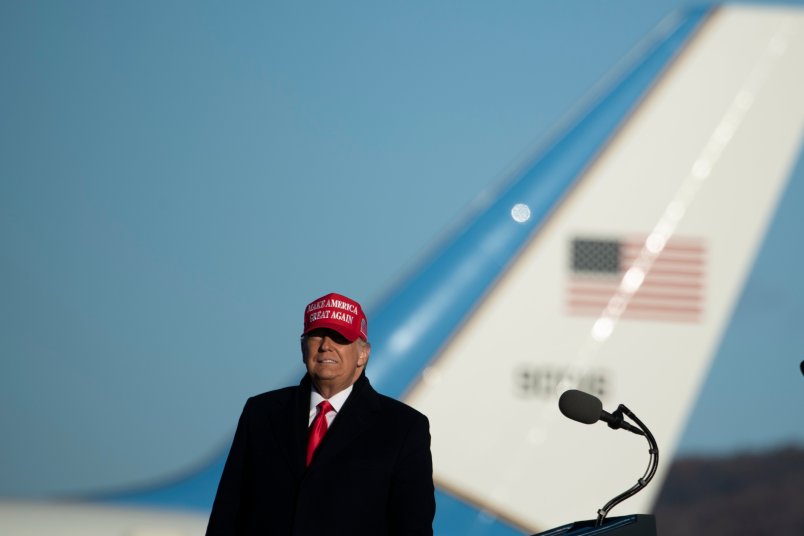On Election Day Eve, President Donald Trump signed an executive order underlining a central theme of his reelection campaign: Liberals want to indoctrinate America’s children.
The order itself was a bit wordier, but it neatly echoed Trump’s closing message to voters on the campaign trail — that non-white politicians and left-wing ideologue educators wanted to create a new, unrecognizable country.
According to the document establishing “the President’s Advisory 1776 Commission” Monday, allegations that America is systematically racist “place rising generations in jeopardy of a crippling self-doubt that could cause them to abandon faith in the common story that binds us to one another across our differences.”
Huh?
Just signed an order to establish the 1776 Commission. We will stop the radical indoctrination of our students, and restore PATRIOTIC EDUCATION to our schools!
— Donald J. Trump (@realDonaldTrump) November 2, 2020
Trump’s been on this kick for months. In a speech at Mount Rushmore on July 4th, for example, he warned of “a new far-left fascism” in schools, in newsrooms and on corporate boards.
“If you do not speak its language, perform its rituals, recite its mantras, and follow its commandments, then you will be censored, banished, blacklisted, persecuted, and punished,” Trump said.
Trump’s order makes four references to “patriotic education,” at one point defining the phrase as “the presentation of the history of the American founding and foundational principles, the examination of how the United States has grown closer to those principles throughout its history, and the explanation of why commitment to America’s aspirations is beneficial and justified.”
The order attacked the “radicalized view of American history” that “has vilified our Founders” and which threatens to “erase the bonds that knit our country and culture together.”
“Viewing America as an irredeemably and systemically racist country cannot account for the extraordinary role of the great heroes of the American movement against slavery and for civil rights — a great moral endeavor that, from Abraham Lincoln to Martin Luther King, Jr., was marked by religious fellowship, good will, generosity of heart, an emphasis on our shared principles, and an inclusive vision for the future,” the order said.
The “1776 Commission,” per Trump’s order, will produce a report within a year “regarding the core principles of the American founding and how these principles may be understood to further enjoyment of ‘the blessings of liberty’ and to promote our striving ‘to form a more perfect Union.’”
But even in its name, the 1776 Commission appears to be part of Trump’s response to the 1619 Project, a New York Times Magazine package that examined the legacy of slavery in American history.
New York University Professor Ruth Ben-Ghiat, an expert on authoritarianism, told TPM during a phone interview in September that the notion of teaching kids about the country’s racist past and how it bleeds into the present moment “goes against everything Trump has been in office to do, which is enact white hegemony.”
“It’s about shutting down certain conversations and allowing others,” Ben-Ghiat said. “Trump is only interested in one truth.”
But Trump’s attacks against the 1619 Project being offered as school curricula seem to have backfired somewhat.
Mark Schulte, who directs the national K-12 education program for the Pulitzer Center, told TPM that Trump’s tweet on September 6 threatening to pull funding over schools using 1619 Project lesson plans led to a major spike in interest among teachers.
In the 19 days following the tweet, the Pulitzer Center received 421 survey responses from teachers who decided to incorporate the project in their classes. In contrast, only 145 surveys had been submitted 19 days before the President’s tweet.







More bullshit!
…to be administered by the representatives of a recently defunct university…
With so many words in the English language at his disposal he invariably chooses the dumbest ones and strings them together to create moronic word salad.
Says the guy who advocates capital punishment for those who take a knee for the National Anthem.
A recently deservedly defunct university.